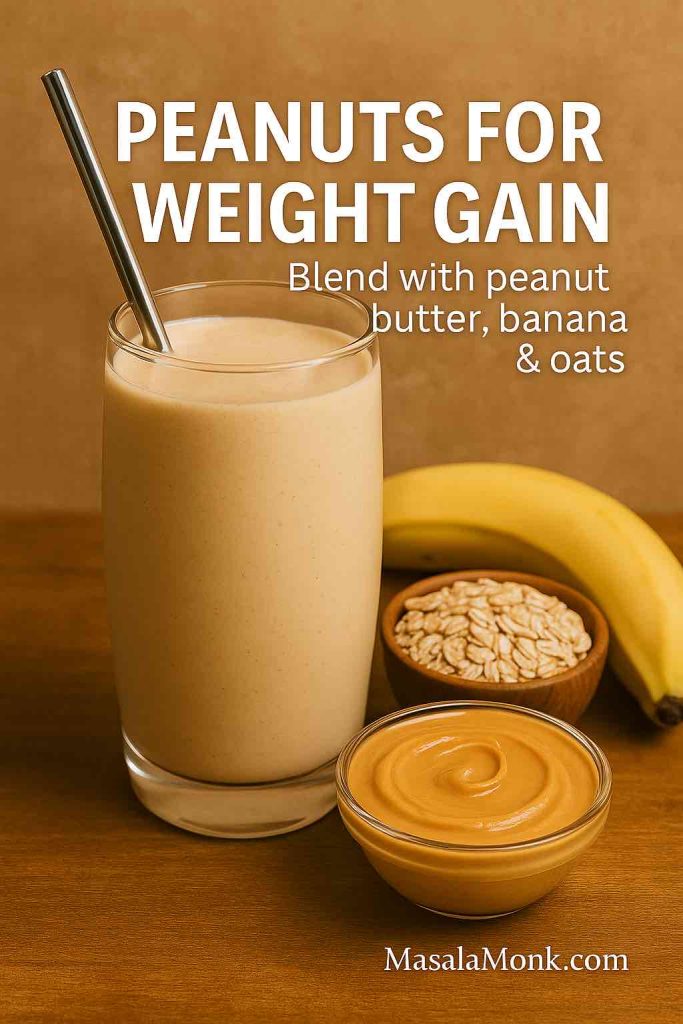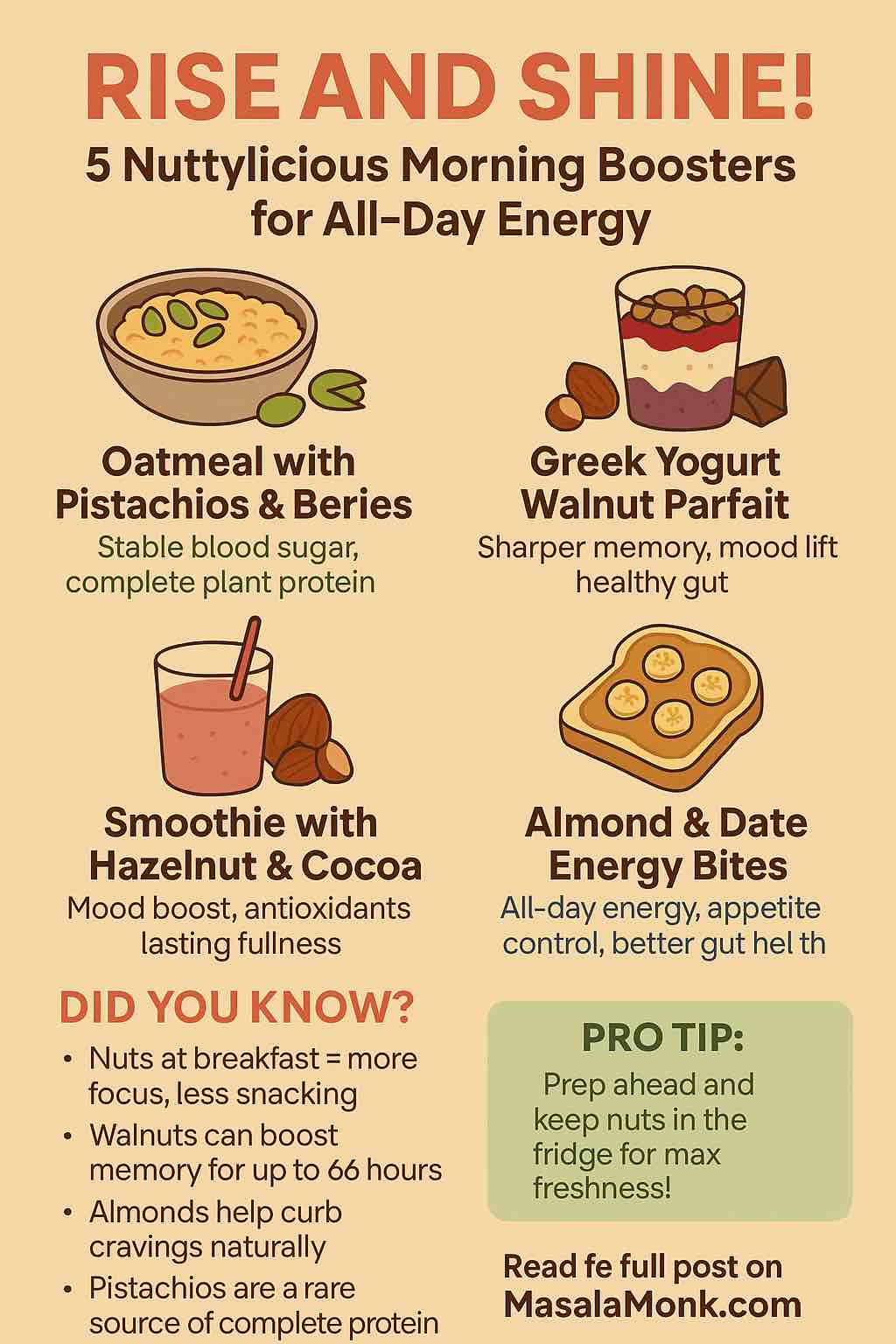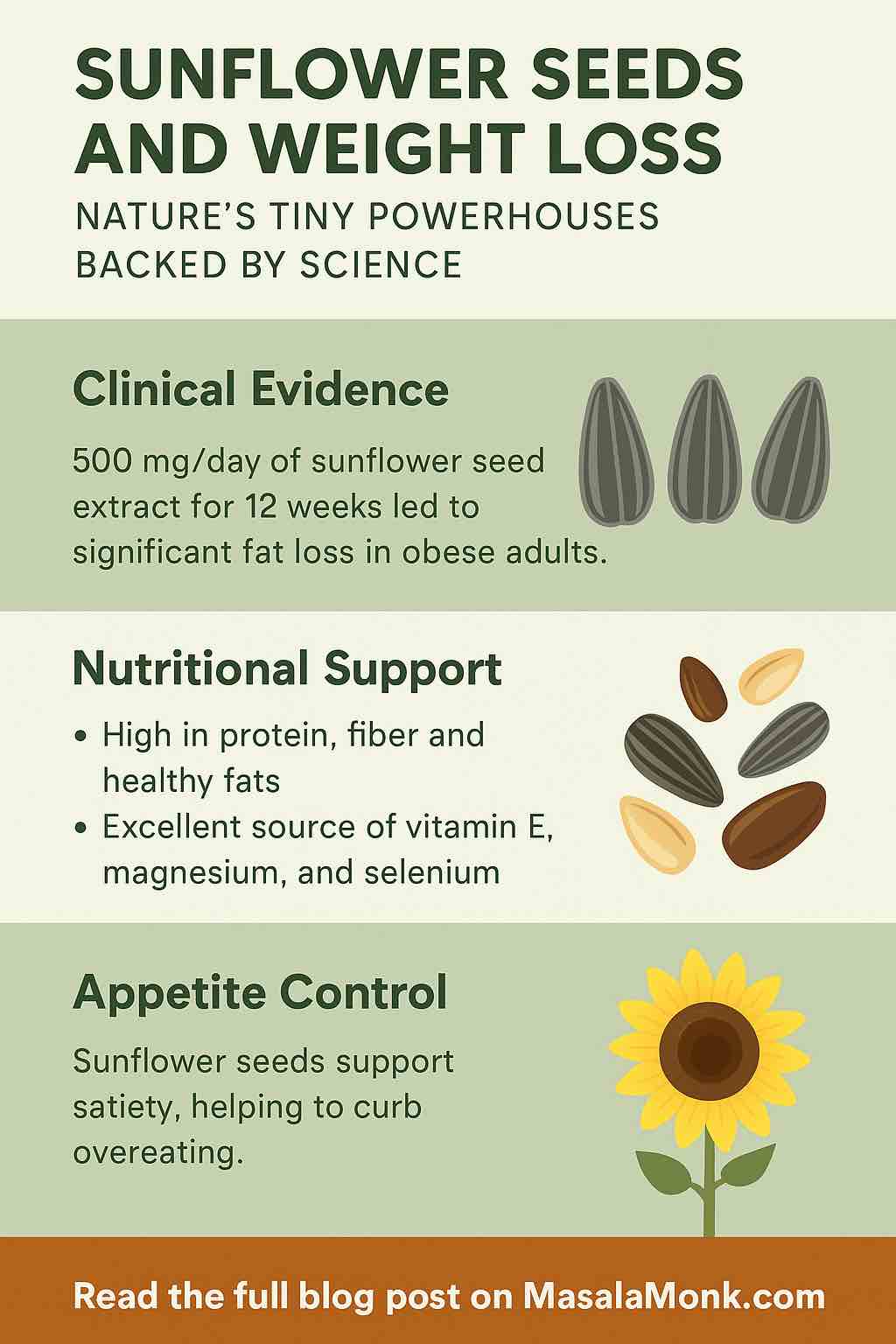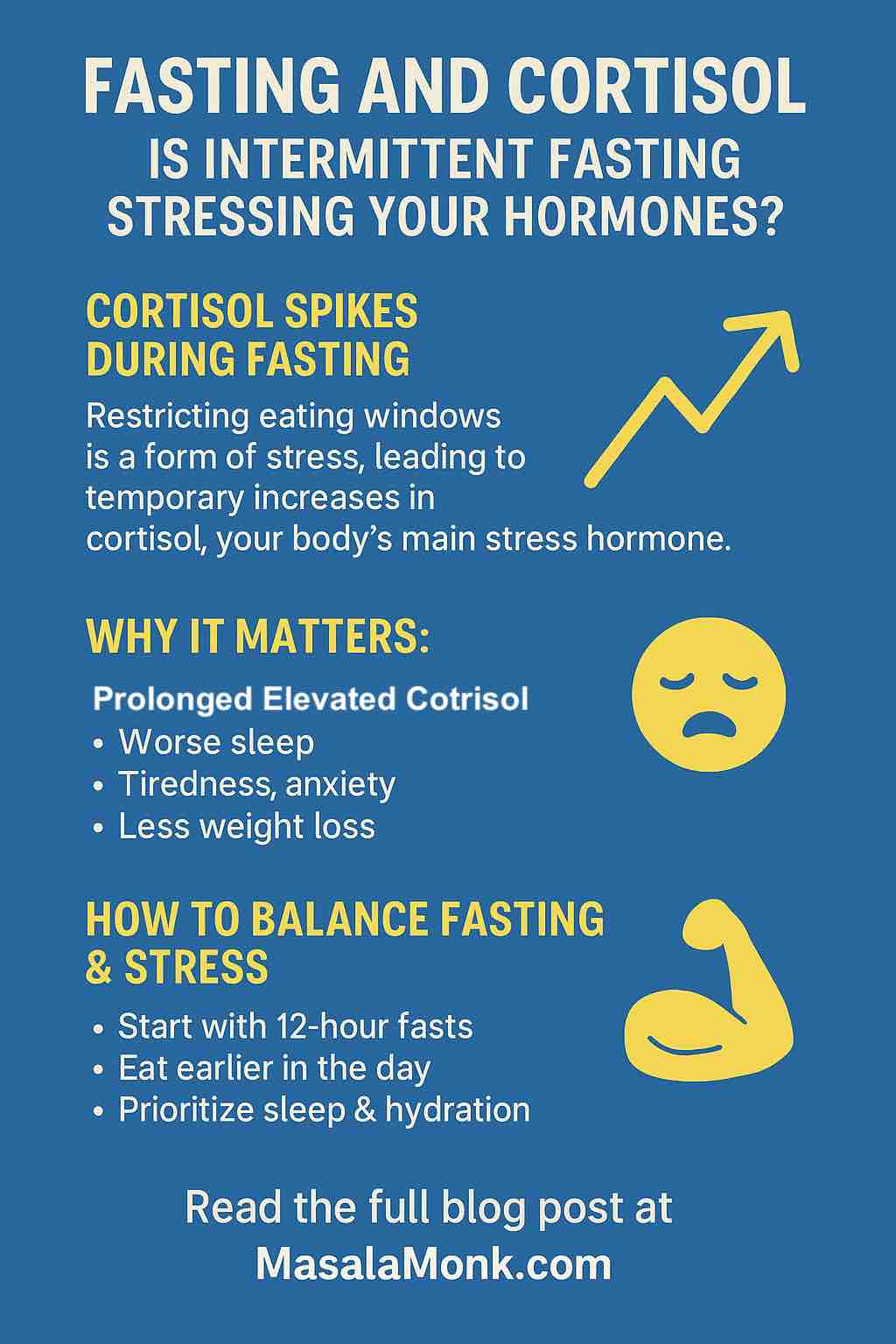
Peanuts are one of those everyday foods that almost everyone has in their kitchen — whether it’s a small jar of peanut butter, a handful of roasted groundnuts from the street vendor, or a crunchy piece of peanut chikki during the winter. But when it comes to weight loss, the humble peanut often sparks confusion. Some people swear that peanuts help them feel fuller for longer and curb cravings, while others worry that these little legumes are “too fatty” or “too high in calories” to fit into a healthy plan.
The truth? Both sides have a point. Peanuts are calorie-dense, but they’re also packed with protein, fiber, and healthy fats — all of which can support weight management when eaten mindfully. In fact, learning how to eat peanuts (and in what form) could be the difference between them working for your waistline or working against it. A systematic review published in Nutrients by researchers at St. Michael’s Hospital, Toronto found that nut consumption is not linked with weight gain and may even reduce the risk of obesity over time (Nishi et al., 2021).
In this guide, we’ll walk through the different ways peanuts can be included in a weight loss journey, explore variations like roasted peanuts, masala peanuts, chikki, and peanut butter, and clear up some of the common doubts around whether peanuts help with fat loss or cause weight gain.
So, let’s crack open the shell and dive in.

Are Peanuts Good for Weight Loss?
When we think of “diet foods,” peanuts don’t usually make the top of the list. After all, one small handful can contain around 150–170 calories. But calories alone don’t tell the whole story.
The Nutritional Advantage of Peanuts
Peanuts (or groundnuts, as they’re called in many parts of India) are an excellent source of:
- Protein – about 7 grams in just a handful, making them a great vegetarian protein option.
- Fiber – slows digestion, keeps you full, and reduces the urge to snack mindlessly.
- Healthy fats – mainly monounsaturated and polyunsaturated fats that support heart health.
- Micronutrients – including magnesium, vitamin E, and B vitamins, all important for metabolism and energy.
This combination means peanuts aren’t just “empty calories.” They actually work to keep you satisfied, which is one of the most important factors in sticking to a weight loss plan.
A clinical trial conducted by the University of South Australia and Texas Tech University found that participants who ate 35 g of lightly salted dry-roasted peanuts twice a day before meals lost an average of 6.7 kg over six months, while also improving blood pressure and fasting glucose levels (UniSA, 2022).
Satiety: The Secret Weapon in Weight Loss
One of the biggest challenges people face when trying to lose weight is constant hunger. Peanuts help solve this problem. The protein and fat slow down digestion, so you don’t feel like reaching for another snack an hour later.
In fact, studies have shown that people who eat nuts (including peanuts) tend to have better control over their appetite compared to those who avoid them. You can read more about this in our post on nuts for weight loss and satiety.
When you’re not hungry all the time, it’s naturally easier to reduce overall calorie intake without feeling deprived.
The Calorie-Density Debate
Of course, we can’t ignore the fact that peanuts are energy-dense. Too many handfuls can quickly push you into calorie surplus, which leads to weight gain. That’s why portion control is key. A small, mindful serving can keep you full and prevent overeating later, while an oversized portion can undo your progress.
Think of peanuts as a strategic snack rather than an all-you-can-eat option. A fistful (around 28–30 grams, or about 15–20 peanuts) is usually the sweet spot for weight loss.
Whole Peanuts vs. Processed Versions
When it comes to peanuts and weight management, form matters.
- Unshelled/raw peanuts: Best choice for mindful eating since cracking them slows you down.
- Roasted peanuts: Great if unsalted and oil-free.
- Masala or salted peanuts: Tasty but often loaded with sodium and extra oil.
- Peanut chikki: Delicious but high in sugar, better for quick energy than fat loss.
- Peanut butter: Healthy if natural and sugar-free, but easy to overeat.
You can also enjoy them in traditional ways, such as a tangy peanut chutney recipe. In short, peanuts can definitely support weight loss, but how you eat them makes all the difference.
How to Eat Peanuts for Weight Loss
If you’ve ever found yourself snacking on peanuts straight out of the jar or polishing off a big cone of roasted groundnuts at the market, you already know how easy it is to go overboard. That’s why when it comes to weight loss, how you eat peanuts is just as important as whether you eat them at all.
The good news? With a little awareness, peanuts can fit beautifully into your plan. They can serve as a quick snack, a protein-rich addition to your meals, or even a healthy replacement for processed munchies — like healthy oat protein bars made with peanut butter that fit perfectly into a weight-loss plan.

Mindful Portion Control
The golden rule is keep it small and intentional. About 28–30 grams (roughly a small handful or 15–20 peanuts) is usually enough to keep hunger away without going overboard on calories.
One simple trick? Buy unshelled peanuts. The act of cracking each shell forces you to slow down, making you less likely to overeat. It turns snacking into a more mindful activity rather than an unconscious hand-to-mouth routine.
Studies show that nuts increase satiety and reduce hunger, helping people naturally lower overall calorie intake. A review published in the American Journal of Medicine by Indiana University researchers confirmed that peanuts and other nuts suppress appetite and increase fullness after eating (Tan & Mattes, 2023).
Best Times to Eat Peanuts for Weight Loss
- Mid-morning or mid-afternoon snack: Keeps blood sugar steady between meals.
- Pre-workout: A small serving provides energy without weighing you down.
- Evening craving buster: Helps prevent late-night junk food binges.
Just avoid eating large amounts right before bed. While peanuts are healthy, they take time to digest and could leave you feeling heavy at night.
Is Roasted Peanuts Good for Weight Loss?
Roasted peanuts (or roasted groundnuts, as they’re often called) are one of the most popular ways to eat them — crunchy, satisfying, and widely available.
The good:
- Dry-roasted peanuts without added oil or salt are an excellent weight loss snack.
- They’re high in protein and fiber, so they keep you full.
- The crunch factor makes them feel indulgent, which helps you stay on track without feeling deprived.

The watchouts:
- Salted roasted peanuts add excess sodium, which can cause water retention and bloating.
- Oil-roasted peanuts can pack hidden calories that derail your deficit.
👉 If you love roasted peanuts, choose the plain, unsalted version. Pair them with a piece of fruit for a balanced snack that covers both protein and fiber.
Is Masala Peanuts Good for Weight Loss?
We’ve all been tempted by spicy, crunchy masala peanuts sold at local shops or as a bar snack. They’re addictive, no doubt — but are they good for weight loss?
The answer: not really.
Why?
- Most masala peanuts are deep-fried and coated in a flour batter.
- They’re loaded with salt and spices, which may make you drink (and eat) more.
- A small bowl can easily cross 300–400 calories without you realizing it.

That doesn’t mean you can never enjoy them. Think of masala peanuts as an occasional treat rather than an everyday weight loss snack. If you want to make them healthier at home, try air-frying or oven-roasting them with spices and just a touch of oil spray.
Peanut Chikki for Weight Loss
Now let’s talk about peanut chikki — a winter favorite in many Indian households. Made with peanuts and jaggery, it’s often thought of as a healthy sweet. But how does it fit into weight loss?
The good:
- Peanuts in chikki still provide protein, healthy fats, and crunch.
- Jaggery, compared to refined sugar, does contain minerals like iron and magnesium.
- A small piece can satisfy sweet cravings better than store-bought candy or chocolate.

The challenge:
- Peanut chikki is calorie-dense. One medium piece can have 150–200 calories.
- The sugar (jaggery) spikes blood sugar, which may make you hungrier later.
👉 Verdict: Chikki is better than processed sweets, but it’s not a weight loss food. If you include it, keep it to a tiny piece as a dessert, not as a daily snack.
Peanuts and Weight Gain – What You Should Know
Up to this point, we’ve been looking at peanuts through the lens of weight loss. But here’s the interesting part — while peanuts can support fat loss in the right portions, they can also do the exact opposite: help with weight gain. It all comes down to how much you eat, how often, and in what form.
A meta-analysis published in The American Journal of Clinical Nutrition confirmed that nut-enriched diets do not increase body weight, BMI, or waist circumference in controlled settings. However, when consumed in calorie surplus, nuts can support healthy weight gain (Flores-Mateo et al.).
For a broader look at how different nuts compare, check out our guide on the best nuts for weight loss.
The Calorie Surplus Factor
At the heart of weight gain is one simple equation: calories in vs. calories out. Peanuts are calorie-dense — one small handful (30 g) contains around 160–170 calories. Have just three extra handfuls every day, and you’ve added 500 calories to your intake. That’s enough to tip you into a calorie surplus, which leads to gradual weight gain over time.
For someone looking to bulk up or gain healthy weight, peanuts are a blessing. They pack a lot of nutrition in a small serving, making it easier to eat more without feeling stuffed.
Peanuts for Healthy Weight Gain
If weight gain is your goal, here’s how peanuts can help you do it right:
- Snack frequently: Instead of limiting peanuts to once a day, enjoy them as a mid-morning and evening snack.
- Add them to meals: Sprinkle roasted groundnuts into poha, salads, or stir-fries for a calorie boost.
- Pair with calorie-dense foods: Combine peanuts with bananas, jaggery, or oats for a higher-energy meal.
- Go for peanut butter: A couple of tablespoons on toast or in a smoothie adds 200+ calories easily.

The Belly Fat Question
A common worry is whether peanuts cause belly fat. Here’s the truth:
- Peanuts alone don’t target belly fat. They don’t have some magical property that sends calories straight to your midsection.
- What happens is that eating peanuts (or peanut butter) in excess can push you into calorie surplus. Over time, that extra energy is stored as fat, and for many people, the belly is where it shows first.
So, peanuts are not “bad” for belly fat — it’s simply a matter of how much you eat relative to your needs.
Finding the Balance: Weight Loss vs. Weight Gain
What’s fascinating about peanuts is that they can fit into both goals — loss and gain.
- For weight loss → Focus on portion control, mindful snacking, and choosing raw/roasted forms.
- For weight gain → Increase frequency and portion size, add them to meals, and embrace calorie-dense versions like peanut butter or chikki.
It’s not the peanut itself that determines the outcome, but how you use it in your daily routine.
Peanut Butter and Weight Loss
Peanut butter has become a pantry staple in many homes — spread on toast, swirled into oats, or blended into smoothies. But when you’re trying to lose weight, the jar can feel a little intimidating. After all, just two tablespoons pack nearly 200 calories. So, is peanut butter really a friend or foe for weight loss?
The answer: it depends on the type you choose and how you use it.
The Case for Peanut Butter in Weight Loss
- High in protein: Around 7–8 grams per serving helps curb hunger and maintain muscle mass.
- Rich in healthy fats: Monounsaturated fats keep you full and support heart health.
- Versatile and satisfying: A little peanut butter can make simple meals — like whole-grain toast or fruit — taste indulgent, making you less likely to crave junk.
Best Peanut Butter for Weight Loss
Not all peanut butters are created equal. Many commercial jars are loaded with sugar, hydrogenated oils, and salt — ingredients that add empty calories and cancel out the health benefits.
What to look for in a weight-loss-friendly peanut butter:
- 100% peanuts (or peanuts + a pinch of salt) → the fewer the ingredients, the better.
- No added sugar or artificial sweeteners.
- No hydrogenated oils or trans fats.

Popular Indian brands that often have “natural” or “unsweetened” ranges include Pintola, MyFitness, MuscleBlaze, and Alpino. Always check the label — even “healthy-looking” jars sometimes sneak in sugar or palm oil.
👉 Practical tip: If you’re new to natural peanut butter, stir it well before use. The oil separation is normal and actually a sign that it’s minimally processed.
Peanut Butter for Weight Gain
Here’s where things flip. While weight watchers need to measure peanut butter carefully, those aiming to gain weight can embrace it more freely.
A couple of tablespoons of peanut butter:
- Add 200+ calories effortlessly.
- Blend beautifully into high-calorie smoothies (with banana, milk, oats, and honey).
- Work as a quick spread on chapati or toast for an energy boost.
This is why peanut butter shows up so often in “weight gain diets” — it’s calorie-dense, nutritious, and easy to include daily. If you’re focusing on overall protein goals, you may also find our guide on how to eat 100 grams of protein a day helpful.
Peanut Butter and Belly Fat – Myth or Truth?
One of the most common Google searches around peanut butter is: “Does peanut butter cause belly fat?” Let’s clear this up.
- Peanut butter by itself doesn’t cause belly fat.
- Belly fat comes from eating more calories than your body burns — regardless of whether those calories come from peanut butter, rice, or bread.
- In fact, natural peanut butter may actually support fat loss thanks to its satiety effect, keeping you from overeating later.
The real risk is in portion size. Eating half a jar in one sitting will absolutely push you into calorie surplus — which could show up as belly fat over time. But a measured spoon or two each day, paired with whole foods, can be part of a balanced, weight-loss-friendly diet.
Portion size is the real issue. A systematic review and meta-analysis published in Foods Journal (MDPI) found that nut intake — even up to 100 g/day — was not associated with weight gain when included in calorie-restricted diets and could even improve body composition (Vilela et al., 2024).
In addition, a meta-analysis published in The American Journal of Clinical Nutrition showed that tree nuts and peanuts can significantly improve markers of glycemic control, which ties into better appetite regulation and weight management (Tindall et al., 2019).
Groundnuts (Mungfali) for Weight Loss
In India, the word groundnut or mungfali is far more common than “peanuts.” Whether sold in paper cones on the roadside, mixed into chaat, or enjoyed roasted during winter evenings, groundnuts have long been a comfort snack. But how do they fit into a weight loss plan?
The good news: groundnuts and peanuts are the same thing. The only difference is the name. And just like peanuts, groundnuts can support weight loss when eaten in moderation and in the right form.
Why Groundnuts Are Great for Weight Loss
- Affordable & accessible: Groundnuts are one of the most budget-friendly sources of protein and healthy fats, making them perfect for everyday diets.
- Protein-packed: A small handful can keep hunger away for hours, which is crucial when you’re trying to control calories.
- Fiber-rich: They promote fullness and support digestion.
- Healthy fat profile: The monounsaturated fats in groundnuts are linked to better heart health and improved satiety.

Best Ways to Eat Groundnuts for Weight Loss
- Boiled groundnuts – A popular snack in South India. Boiling makes them softer and less calorie-dense than fried versions. Add a pinch of salt and turmeric for flavor.
- Dry-roasted groundnuts – Simple, crunchy, and filling. Stick to unsalted versions.
- Groundnut chutney – Works well as a side, but keep portions small since it often uses oil.
- Added to meals – Sprinkle into poha, upma, or salads for extra crunch and protein.
Groundnuts to Avoid During Weight Loss
- Fried groundnuts: Deep-fried versions (often sold in markets) are heavy in oil and extra calories.
- Salted groundnuts: Excess sodium can cause bloating and make you eat more.
- Groundnut-based sweets: Chikki, laddoos, or brittle may be tasty, but the added sugar cancels out the weight loss benefits.
Interestingly, not all calories from nuts are absorbed by the body. A review published in Nutrients (MDPI) by the U.S. Department of Agriculture explained that due to fiber content and incomplete digestion, nuts provide less metabolizable energy than previously assumed — meaning your body doesn’t absorb every calorie listed on the label (Baer et al., 2023).
Final Thoughts
When it comes to weight management, peanuts — or groundnuts, mungfali, peanut butter, and even peanut chikki — are a bit like a double-edged sword. They can be your greatest ally or your sneaky setback, depending on how you use them.
If your goal is weight loss, think of peanuts as a smart snack. A handful of raw or dry-roasted groundnuts can keep hunger at bay, help you avoid processed junk, and provide protein and healthy fats that support your journey. But the key is portion control. Too much of even a good thing can tip you into calorie surplus.
If your goal is weight gain, peanuts become a powerful ally in the opposite way. By increasing your portions and including calorie-dense versions like peanut butter and chikki, you can boost your intake without relying on unhealthy fast foods.

The beauty of peanuts lies in their versatility. They can be boiled, roasted, spiced, or crushed into butter. They can appear in your breakfast smoothie, your evening snack, or even your winter sweets. Few foods are this adaptable, this affordable, and this universally loved.
So, the next time you crack open a shell or spread peanut butter on toast, remember: peanuts aren’t the enemy. They’re simply a tool. Use them with mindfulness, and they’ll work for you — whether that means shedding kilos, building muscle, or just staying healthy.
In the end, it’s not about labeling foods as “good” or “bad.” It’s about finding the balance that works for you. And in that balance, peanuts — humble, crunchy, and nourishing — can absolutely earn a spot on your plate.
📚 References
- Nishi SK, Viguiliouk E, Kendall CWC, et al. (2021). Are fatty nuts a weighty concern? A systematic review and meta-analysis on the effects of nut consumption on adiposity and related disease risk factors. Published in Nutrients, St. Michael’s Hospital, Toronto.
👉 Read the full review on PubMed Central - University of South Australia & Texas Tech University (2022). Peanuts present a nutty solution for weight loss. Clinical trial showing peanut intake before meals supported significant weight loss and metabolic benefits.
👉 Read the study release - Tan SY, Mattes RD. (2023). A review of the effects of nuts on appetite, food intake, metabolism, and body weight. Published in the American Journal of Medicine, Indiana University.
👉 Read on ScienceDirect - Flores-Mateo G, et al. (2013). Nut intake and adiposity: meta-analysis of clinical trials. Published in The American Journal of Clinical Nutrition.
👉 Read the analysis - Vilela S, et al. (2024). Nuts combined with energy restriction on weight loss, body composition, satiety, and diet quality in adults: A systematic review and meta-analysis. Published in Foods Journal (MDPI).
👉 Read full text on MDPI - Baer DJ, Gebauer SK, Novotny JA. (2023). Nuts, Energy Balance and Body Weight. Published in Nutrients (MDPI), U.S. Department of Agriculture.
👉 Read the review - Tindall AM, et al. (2019). Tree nut and peanut consumption and markers of glycemic control in adults: A systematic review and meta-analysis of randomized controlled trials. Published in The American Journal of Clinical Nutrition.
👉 Read on AJCN
Frequently Asked Questions About Peanuts and Weight Loss
1. Do peanuts really help with weight loss?
Yes, peanuts can support weight loss when eaten in moderation. Thanks to their protein, fiber, and healthy fats, they help you feel fuller for longer and reduce cravings. A clinical trial by the University of South Australia showed that people who ate a small serving of peanuts before meals lost weight more effectively than those who didn’t.
2. How many peanuts should I eat per day for weight loss?
For weight loss, the sweet spot is about 28–30 grams (a small handful or 15–20 peanuts). This portion provides around 150 calories, enough to keep you satisfied without pushing you into a calorie surplus. Eating too many handfuls, however, can quickly add up.
3. Is roasted peanuts good for weight loss?
Dry-roasted, unsalted peanuts are one of the best forms to include in your weight loss diet. They’re crunchy, filling, and free from hidden oils or excess salt. On the other hand, salted or oil-roasted peanuts may cause water retention and add unnecessary calories.
4. Can masala peanuts be eaten during weight loss?
Masala peanuts are tasty but not ideal for weight loss. Most versions are fried and heavily salted, making them calorie-dense and less healthy. If you love the flavor, you can make a homemade roasted masala peanut version using an oven or air fryer with minimal oil.
5. Is peanut chikki good for weight loss?
Peanut chikki is rich in protein and minerals from peanuts and jaggery, but it’s also high in sugar and calories. One medium piece can contain up to 200 calories. It’s fine as an occasional treat, but not something to eat daily if you’re aiming for fat loss.
6. Which peanut butter is best for weight loss?
The best peanut butter for weight loss is natural, unsweetened peanut butter made only from peanuts (and maybe a pinch of salt). Avoid processed versions with added sugar, oils, or stabilizers, as they cancel out the health benefits. Indian brands like Pintola, MyFitness, and MuscleBlaze offer natural options.
7. Does peanut butter cause belly fat?
No, peanut butter alone does not cause belly fat. Excess calories from any food, whether rice, bread, or peanut butter, can lead to fat gain. In fact, studies in The American Journal of Clinical Nutrition show that nut consumption is linked to better appetite control. The key is portion control — stick to 1–2 tablespoons per day.
8. Are groundnuts (mungfali) good for weight loss?
Absolutely! Groundnuts (mungfali) are simply another name for peanuts. They’re affordable, protein-rich, and fiber-packed, making them perfect for weight management. The best forms are boiled or dry-roasted groundnuts. Avoid fried or salted versions to keep your snack weight-loss-friendly.
9. Can peanuts also help with weight gain?
Yes — the beauty of peanuts is that they work for both goals. For weight gain, increase portion size, snack more frequently, and add calorie-dense versions like peanut butter smoothies or peanut chikki. Peanuts are calorie-rich, so they make gaining weight easier without relying on junk food.
10. What is the best time to eat peanuts for weight loss?
The best times are:
- Mid-morning or mid-afternoon snack to avoid unhealthy munching.
- Pre-workout for energy and protein.
- Evening to curb late-night cravings.
Avoid eating large amounts right before bed since peanuts take time to digest.


















